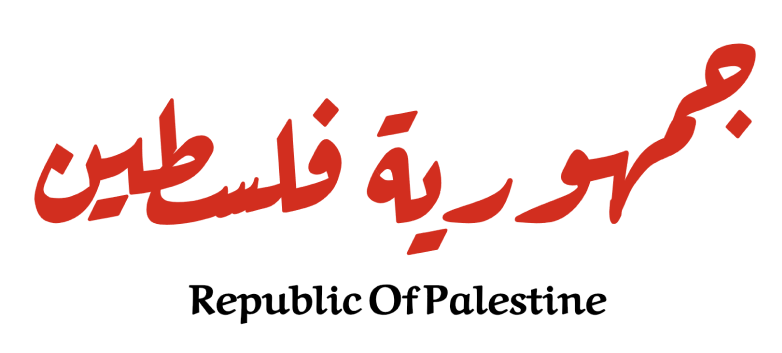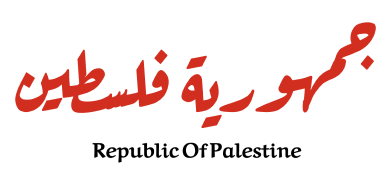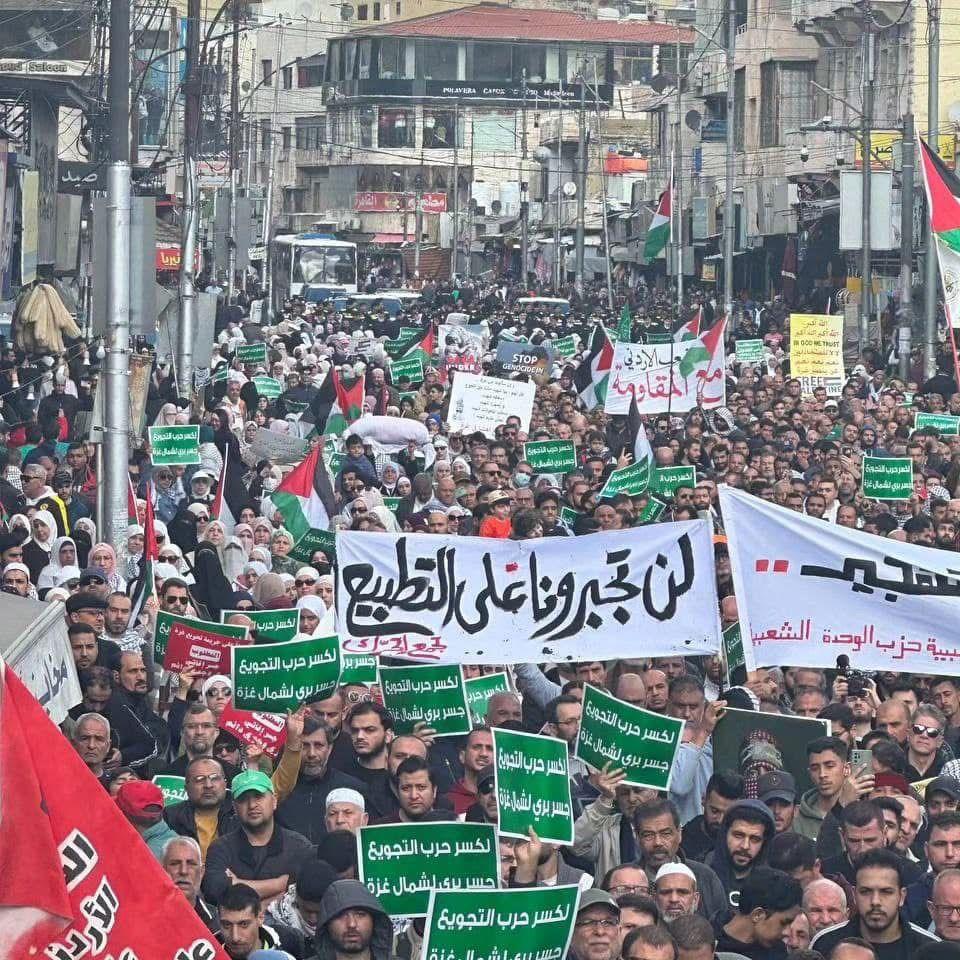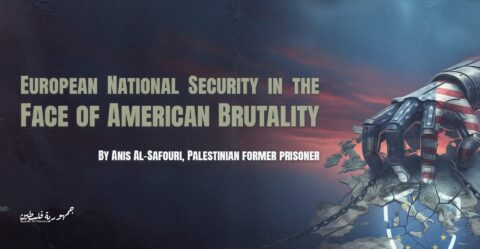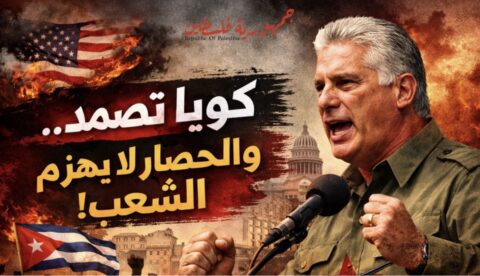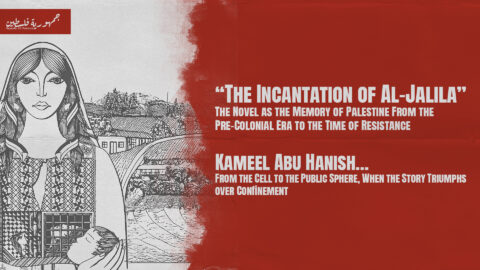In recent decades, successive Arab governments have taken rapid steps toward normalizing relations with “Israel”, the colonial settler entity that has occupied Palestine and displaced its people since 1948. These steps began with the Camp David Accords with Egypt in 1978, followed by Oslo in 1993 and Wadi Araba in in 1994, and culminating in the so-called “Abraham Accords” in 2020, were not mere diplomatic decisions, but rather major political shifts that denied Palestinian rights and opened the region’s doors to a colonial entity that has never abandoned its expansionist project.
In contrast, the Arab street across capitals, cities, and diaspora communities remained opposed to this path, raising its voice to declare that Palestine is not only the cause of the Palestinians, but of the entire Arab nation, and a measure of justice, dignity, and sovereignty. This popular rejection was not merely emotional or symbolic, but stemmed from a deep understanding that the Israeli entity is not a normal entity, but rather an expansionist settler-colonial project that seeks to dismantle the region and drain it politically, culturally, and economically.
Normalization, in this context, was not limited to opening embassies or signing agreements, but took many forms: cultural, sporting, media, and economic; from the participation of Arab artists in joint festivals with Israelis, to normalization meetings on soft news programs, to cross-border investments and partnerships. All these forms aim to reshape the image of “Israel” in the Arab consciousness, from an occupying entity to a “natural neighbor” or “strategic ally,” in an attempt to erase the collective political memory.
The danger in this path is that normalization has not come as the result of a “just solution to the conflict,” but rather as a complete reversal of the equation. Instead of viewing the occupation as a crime, the occupier is promoted as a partner in “development and peace.” and instead of being punished for its daily crimes in Gaza, the West Bank, and Jerusalem, it is rewarded with integration into the region.
However, the rejection of normalization was not, and should not be reduced to, mere solidarity with Palestine or an expression of humanitarian support for a people under occupation. It is, first and foremost, a sovereign position to protect the Arab self from an expansionist colonial entity. “Israel”, by its very nature, is not a project confined within the borders of occupied Palestine, but rather the spearhead of a project to dismantle and weaken the entire region. Every Arab state that normalizes relations believes that it is establishing a normal relationship with a “state,” when in reality it is opening its borders to dangerous intelligence, cultural, and economic infiltration. Normalization is not only a stab in the back of the Palestinians, but also a dagger in the back of Arab national security and a passageway for infiltrating and dismantling societies from within.
Despite all the pressure imposed on the people, the Arab masses have proven that they have not given up. In Morocco, Tunisia, Jordan, Lebanon, Kuwait, Algeria, and Iraq, we have witnessed popular campaigns to boycott normalization activities, withdrawals from sporting events with Israelis, and statements by artists and intellectuals rejecting normalization. The international Boycott, Divestment, and Sanctions (BDS) movement has also emerged, active in Western universities and supported by human rights activists and progressive Jews, to affirm that this entity cannot be forcibly integrated into the region and that its natural place is in isolation, not in celebration.
Because regimes know that normalization lacks legitimacy, they rely on tools of repression, marginalization, or media disinformation to push it through. However, boycotts have proven to be the most effective weapon against this approach. Boycott is not merely a reaction, but an organized civil resistance project that strips the enemy of the legitimacy of integration, deprives it of resources, and exposes those who collude with it.
But what is even more dangerous is that some Arab regimes have not been content with normalization, but have begun to criminalize anyone who supports the resistance or expresses rejection of the occupation. Support for the Palestinians, even if only in principle, is now classified as extremism, and anti-Zionist statements are prosecuted in courts and criminalized in the name of “fighting terrorism” or “incitement to violence.” In some countries, laws have been enacted to criminalize any act that could be interpreted as support for the resistance, even if it is posted on social media.
This comes at a time when international conventions and United Nations resolutions affirm that resistance to occupation, by all means, including armed struggle, is a legitimate right of peoples under colonialism and occupation. Attempts to label resistance as terrorism and criminalize its supporters only serve the occupation, turning the victim into the accused and the executioner into a partner in the “war on terror.”
Recent experiences have proven that normalization agreements do not bring peace. After the signing of the Abraham Accords, killings in Gaza increased, settlement activity in the West Bank accelerated, incursions into Jerusalem doubled, and the enemy became more brazen in its crimes. All this means one thing: normalization is not a solution, but rather a mandate for bloodshed, collusion with murder, and a public betrayal of the Palestinians.
Despite all these obstacles, the narrative of resistance remains alive, and today’s confrontation is no longer confined to the military arena, but has moved to the cultural, media, and legal spheres. Whoever wins the narrative battle wins much of the battle on the ground. If the world continues to hear only the Zionist narrative, Palestine will remain forgotten. However, if we succeed in establishing our narrative as one of liberation, justice, and the rights of a people, our cause will remain present, regardless of the number of normalizers.
The battle against normalization is not only a battle against occupation, but also a battle to defend memory, sovereignty, and the meaning of being a free Arab in a time of decline. Therefore, the peoples who wrote the document of rejection with their blood and their stance continue to be the safety valve in the face of this official encroachment. For this very reason, no matter how much the rulers normalize relations with “Israel”, it will remain an unnatural entity in the consciousness of the nation.
–Mohammed Al-Absi
A Jordanian political activist and member of the political bureau of the Popular Unity Democratic Party of Jordan, a left-wing party. He is the general coordinator of the “Itharrak” (Move) movement to support the resistance and confront normalization, and is also the secretary of the Jordanian national campaign to overturn the gas agreement with the Zionist entity, popularly known in the media as “Gas of the enemy is occupation.” The campaign was founded in 2014 with the aim of preventing the import of gas from Israel.
